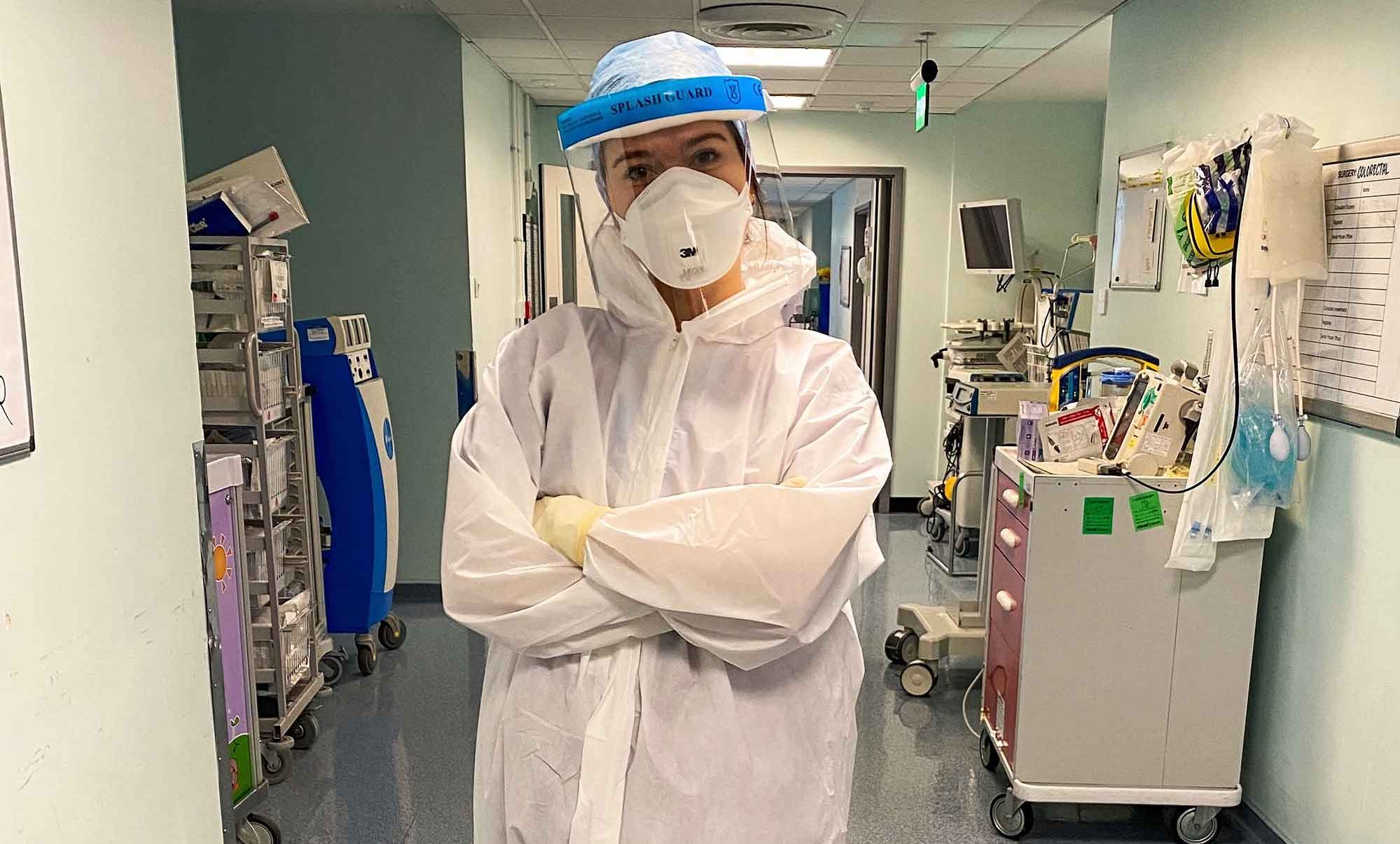 After her call to help at Northwick Park hospital during the COVID-19 outbreak, Lauren Clark tells us how her experience has gone.
After her call to help at Northwick Park hospital during the COVID-19 outbreak, Lauren Clark tells us how her experience has gone.
‘Northwick Park hospital (London) are desperate for help in the fight against COVID-19; can you start tomorrow?’ The question that brought an abrupt halt to my foundation training, just six months in.
I was informed I would be redeployed to form part of the ‘proning team’ in the intensive care unit. After initially wondering what proning actually meant (periodically turning patients to lie on their front and approximately 16 hours later ‘deproning’ them back supine. It is used to improve oxygenation in patients suffering with coronavirus), I was excited to join a frontline team. Like thousands of my fellow foundation dentists, frustrated from triaging our patients over the phone, it is a privilege to help in the fight against this pandemic.
Within days I swapped the nine to five of general dental practice for 11-hour shifts. This replaced my daily dose of webinars for sleep, in anticipation for my first night shift.
COVID-19 PPE
My team consists of orthopaedic surgeons, speech and language therapists, physiotherapists and nurses. All united in their new roles in ITU. It takes seven of us to prone one patient. This includes one anaesthetist to maintain the patient’s airway and three colleagues either side of the patient. Multiple organ failure means these patients have several lines attached, so disconnecting and reconnecting them is like a military operation.
It is saddening to hear that colleagues working on the frontline haven’t had access to fundamental PPE. Fortunately, this has not been my experience. Before attending ITU, I had a mask fit test and nobody asks me to enter a situation without adequate protection.
Donning PPE for the first time was much more intense than scrubbing up for theatres. I cover my scrubs and wellies with a waterproof hazmat suit, followed by four pairs of gloves preventing cross infection and any transfer of the virus to myself.
We press the FFP3 masks as tightly as possible onto our faces, knowing the potential life-threatening nature of getting this wrong. I also understand now why men sacrifice their beards to start work. Once correctly fitted, I breathe continuously through the mouth in order to get an airflow through the filter. Shouting becomes the only way for colleagues to hear my voice.
Finally: hood up, visor on and an apron with my name on to follow. All of this PPE makes identification impossible. After three hours in this, sweat drips down my back, then my goggles fog with condensation, and I have the imprint of the outline of my mask on my face.
Emphasis is placed on removal of PPE, as this is the point where there is a massive risk of transferring the virus to myself and then to others. I can’t help but think – is this the future of dentistry?
Saving lives
The hospital at the moment is surreal. Deserted wards and hallways once bustling with visitors and staff have become multi-functional units performing way above familiar capacity. ITU bed count has increased by 275%. We cordon patients off behind zipped plastic sheets with ‘caution’ posters on ward doors. Only patient monitor alarms and weak coughs break the silence.
Confronted by a sea of sedated patients, I was struck by how vulnerable coronavirus is making people. The hardest part is that patients cannot see our faces, which therefore makes interaction almost impossible. I feel a sense of frustration that I cannot offer them my usual reassurance. I hope they aren’t feeling lonely and isolated.
Recently we reproned a patient whose oxygen saturation plummeted to 29%. There was a team of surgeons on hand who sprang into action and performed an emergency ECMO (extracorporeal membrane oxygenation) procedure – a lifesaving operation to create a lung bypass. I looked on in awe, as this highly-skilled team moved seamlessly from operating on the neighbouring patient to save this patient’s life; they were incredible.
Although we cannot save everyone, there is a sense that the vital role we are fulfilling brings its own reward. ‘I’m ok’ is a standard response heard often between doctors and nurses in the office. It comes with a mutual understanding that although not completely okay, they want to carry on.
Ironically, at the same time I feel we are the lucky ones. We are able to talk, laugh and even cry together. Often over food kindly donated by the general public and local charities.
The future of dentistry
One of the incredible nurses arranges video calls with families. A moment that will stay with me was hearing a deteriorating patient’s son sing to him on Facetime just hours before he passed away. The nurse says how personally demanding this role is. But seeing the comfort this contact brings to families, gave her the strength to carry on.
As a dentist in ITU, I have had to compartmentalise my future dental career and concentrate on helping in the battle with coronavirus. This unprecedented situation has also made the future of dentistry uncertain and worrying. However, it makes me proud to realise how malleable our skillsets are and how rapidly we can adapt to change.
Working through this pandemic, we are now seeing ITU bed numbers declining. I have spent these few weeks in awe of all of the relentless, unwavering members of staff who are working around the clock and I am proud that as a dentist, I have been able to help.
Supported by such acts of kindness, I am one of those fortunate to be helping the NHS on the frontline. I am humbled to be playing such a small part of this incredible team fight against COVID-19.


